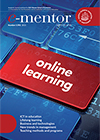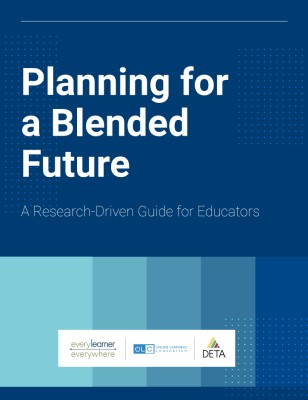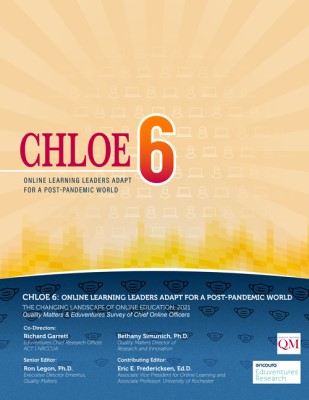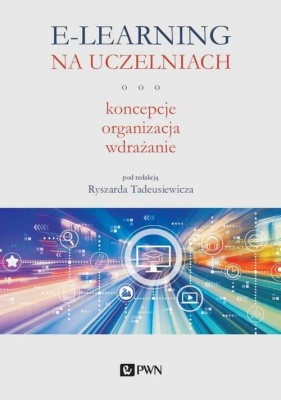Ukazał się nowy numer e-mentora. Zachęcamy do lektury.

In 2020 the "e-mentor" volumes were dominated by the topics concerning the change the COVID-19 pandemic has bought to education all over the world. While those issues are still present in the current edition of the journal, the shift towards the lessons learned can be observed along with the questions referring to teachers' well-being and other self-efficacy aspects.
The rapid shift to distance work also raised the question about the role of technologies in contemporary business and the need for digital transformation in organizations. In the current volume, there are also articles concerning the implementation of agile methodology in large organizations and the role of transactional and transformational leadership in the context of organizational justice.
I do hope this collection of papers creates a valuable reading for everyone interested in education and management worldwide.
czytaj dalej »
Polecamy w nim szczególnie:
Agnieszka Lipińska-Grobelny, Marta Narska, Self-efficacy and psychological well-being of teachers
Teachers' belief that they can influence the school success of their students, even the weaker and less motivated ones, is not unrelated to their overall assessment of life quality (Kulawska, 2017). Therefore, the purpose of the presented research was to examine whether teachers' self-efficacy is related to their psychological well-being. The holistic approach to well-being, which is most often analyzed in terms of pleasure and fulfilment, i.e. in hedonic categories, is a novelty in the conducted analyses. In this study, the hedonic approach is complemented by the eudaimonic approach, which describes well-being as a pursuit of self-development and self-improvement by cultivating important aspects of life.
czytaj dalej »
The article presents the results of a research questionnaire conducted among students and lecturers after the first, and repeated after the second, exam session during the pandemic crisis as this was the first time the examinations were conducted by distance education at The Maria Grzegorzewska University (Warsaw, Poland). Lecturers see the advantages of remote examination in the technological possibilities of conducting examinations (automation in checking and assessing the tests and archiving the results), time savings (immediate availability of results, flexibility of examination dates), and organizational improvements. Students indicate the comfort of writing the exam in a friendly environment, which reduces stress, and appreciate the possibility of obtaining results quickly and the need to spend less time on the exam itself. In the case of disadvantages of remote exams, lecturers indicate a lack of control over the independence and integrity of students, and students complain about the stringent time constraints, distractors and stress, as well as the level of the exam (both higher and lower compared to the level of traditional exams) and the adequacy of the grades obtained.
czytaj dalej »
Digital transformation is widely recognized to be a key issue in contemporary management studies. The area is attracting increasing attention because of both the general trend of the growing importance which digital technologies play in the present society, as well as the ways companies are using digital technologies to improve their competitive advantage. As a result, digital transformation is a subject of a growing number of papers, research, and managerial publications. The main aim of this work is to propose and validate a method to measure the phenomenon and its role in companies’ strategies, and to gather information on strategic directions for digital transformation in enterprises. This paper presents an overview of the literature discussion on digital transformation. A method to study directions of digital transformation in enterprises is demonstrated.
czytaj dalej »
Często czytane
- Odpowiedzialne Badania i Innowacje - koncepcja i zakres jej stosowania w obszarach zaangażowania społecznego, równości płci i etyki
- Utopijny uniwersytet dla realistów (felieton)
- Uczelnia organizacją w odcieniu turkusu - szansa czy iluzja?
- Zapomniany geniusz. Profesor Marian Mazur i jego szkoła cybernetyki
Wydarzenia/konferencje
Nowe na blogu
Gdy student może wybrać czego chce się uczyć...
Wśród artykułów zgłaszanych w ostatnim czasie do „e-mentora” bardzo wyraźnie zaznacza się wątek analizy tego, jak przebiegały zajęcia zdalne w tym i poprzednim roku akademickim, jakie są opinie i odczucia uczestników tych zajęć (nauczycieli i studentów), a także jak wyglądało sprawdzanie nabytej wiedzy (częściej), bądź umiejętności (znacznie rzadziej). Natomiast tylko w nielicznych opracowaniach pojawia się refleksja nad tym, jak zorganizować zajęcia online w kolejnych latach, mimo że wielokrotnie przewija się stwierdzenie, że należy się przygotować na nauczanie hybrydowe, czyli realizowane częściowo zdalnie, a częściowo w murach szkoły/uczelni. Trudno się spodziewać, że po okresie wymuszonej przez pandemię edukacji online zniknie ona całkiem z praktyki akademickiej, a także szkolnej.
Myślę zatem, że uwaga edukatorów powinna się skupiać bardziej na poszukiwaniu/testowaniu nowych rozwiązań dydaktycznych niż na sprawdzaniu czy studenci są zadowoleni i jak oceniają pracę nauczycieli.
czytaj dalej »



